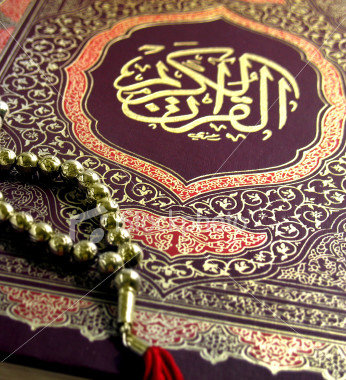Important fataawaa about repentance :: I want to repent …
Posted on: June 23, 2012
- In: All | Allah الله | E-Books | I want to Repent | Islam | Library
- 3 Comments
Important fataawaa about repentance

You might say: “I want to repent, but I know nothing about the rulings concerning repentance. I have many questions about how to repent properly from my sins, how to repay the ‘debts’ I owe to Allaah for the duties towards Him that I have neglected and how to compensate others for the things that I have taken from them or denied them. Is there any answer to all these questions?”
Here are some answers that will quench your thirst for knowledge as you return to Allaah:
Q1: I fall into sin, then I repent, but my human soul which is prone to evil (my nafs) gets the better of me and I repeat the sin! Does this mean that my first act of repentance is cancelled out and that I still bear the burden of the earlier sin as well as the later sin?
A1: Most of the scholars say that it is not a condition of valid repentance that the person should never commit the sin again. The conditions of valid repentance are that the person should stop the sinful action immediately, feel sincere remorse for having done it, and be determined not to repeat it. If he does repeat it, he is then like a person who has committed a new sin, for which he must repent anew; his previous repentance, however, is still valid.
Q2: Is repentance from one sin valid when I am still guilty of another?
A2: Yes, repentance from one sin is valid even if you are guilty of another, so long as they are not of the same kind and the second sin is not connected to the first. For example, if a person repents from dealing in riba (usury, interest) although he drinks wine, or vice versa, then his repentance is valid, but if he were to repent from dealing in simple interest whilst still dealing in compound interest, then his repentance would not be acceptable. Similarly, if he were to repent from smoking hashish whilst still drinking wine, or vice versa, or he were to repent from committing zinaa with one woman whilst still in a sinful relationship with another, his repentance would be unacceptable. In such cases, all that one is doing is moving from one sin to another within the same category of wrongdoing. (See al-Madaarij)
Q3: I have neglected many rights of Allaah in the past, such as prayers, fasting and zakaah. What should I do now?
A3: According to the most correct opinion, the person who has neglected prayers in the past does not have to make them up now, because the time when they were due is now over, and he cannot do anything about it. However, he can compensate for them by sincerely repenting, seeking Allaah’s forgiveness and offering as many naafil (supererogatory) prayers as he can, so that Allaah may excuse him.
If the person who has neglected fasting was Muslim at the time when the fasts were due, then he has to make them up and, moreover, he has to feed one poor person for each day of Ramadaan that he missed and did not make up before the next Ramadaan came, for no reason. This is the expiation for delay in making up fasts, and it remains as such, even if successive Ramadaans have come and gone.
Example 1: A man neglected to fast on 3 days of Ramadaan in 1400 AH and 5 days of Ramadaan in 1401 AH, out of negligence. Several years later, he repented to Allaah. He must now make up the eight days on which he did not fast, and feed one poor person for each of the eight missed days.
Example 2: A girl reached the age of puberty (i.e., started her periods) in 1400 AH, but felt too embarrassed to tell her family, so she fasted for the eight days, say, of her period, and did not make up those days later. [These fasts are invalid because a menstruating woman is not allowed to fast. Translator]. Subsequently, she repented to Allaah, so now the same ruling applies – she has to make up those days and feed one poor person for each missed day.
It should also be noted here that there is a difference between neglecting prayers and neglecting fasting. There are some scholars who say that the one who deliberately misses a fast with no excuse, cannot make it up later.
The one who has neglected to pay zakaah in the past still has to pay it, because it is both the right of Allaah and the right of the poor.
(For more information, see Madaarij al-Saalikeen, 1/383)
Q4: If a sin involves the rights of another person, what form should repentance take?
A4: The governing principle in this case is the hadeeth of the Messenger of Allaah ![]() (peace and blessings of Allaah be upon him): “Whoever has done wrong to his brother, whether it be the matter of honour or of money, let him put it right today, before he is overtaken by a Day on which there will be no dinar or dirham, but any good deeds he has to his credit may be taken and given in compensation to the one he has wronged, and if he has no good deeds to his credit, his victim’s sins may be taken and added to his own burden instead.” (Reported by al-Bukhaari).
(peace and blessings of Allaah be upon him): “Whoever has done wrong to his brother, whether it be the matter of honour or of money, let him put it right today, before he is overtaken by a Day on which there will be no dinar or dirham, but any good deeds he has to his credit may be taken and given in compensation to the one he has wronged, and if he has no good deeds to his credit, his victim’s sins may be taken and added to his own burden instead.” (Reported by al-Bukhaari).
The only way out for the person who is repenting from such wrongful acts is to give back what he owes to his victims, or to ask for their forgiveness. If they forgive him, then all is well, otherwise he has to pay them back.
Q5: I committed the sin of backbiting about one or more persons, and I slandered others by saying that they had done things of which they were innocent. Do I have to tell them about what I did and ask for their forgiveness? If not, then how do I repent?
A5: This is a matter which requires one to weigh up the pros and cons.
If telling them about the backbiting or slander is not going to make them angry or cause them to hate him, then he should tell them – even if only in general terms – and ask for their forgiveness. He could say “I have wronged you in the past,” or “I have spoken unfairly about you, and now I have repented to Allaah, so please forgive me” – without going into details, and this is good enough.
But if telling them about his backbiting or slander is likely to provoke their hatred and anger (which is more likely in most cases), or if general terms will not satisfy them and they will demand more details (which will make them hate him even more) – then he does not have to tell them at all, because Islam does not want to increase wrongdoing. Telling a person who was previously relaxed and happy about something that will make him angry and provoke hatred goes against the aims of sharee’ah, which seeks to open Muslims’ hearts towards one another and spread brotherly love among them. Telling a person about one’s backbiting may make that person hate him from now on. In such a case it is sufficient just to repent to Allaah, in the following manner:
One should feel remorse, seek Allaah’s forgiveness, think about the vileness of this sin, and believe that it is haraam.
He should tell the people to whom he uttered the false words that what he said was not true, and he should clear the name of the person about whom the slander was uttered.
He should speak highly of the person he had slandered, in the same gatherings where the backbiting occurred, and mention his good qualities.
He should defend the person about whom he had gossiped in the past, and speak up for him if anyone tries to speak ill of him.
He should pray for forgiveness for him in his absence.
(al-Madaarij, 1/291; al-Mughni ma’a’l-Sharh al-Kabeer, 12/78)
We should note here the difference between financial rights and the right to physical safety, on the one hand, and the rights affected by backbiting and slander, on the other. People can benefit from being told about and compensated for their financial rights, and they will be happy, which is why concealing them is not permitted. This is different to the case of offences which concern a man’s honour, where disclosing them will only cause more distress and pain.
Q6: How does a murderer repent?
A6: The murderer has violated three rights: the rights of Allaah, the rights of his victim, and the rights of his victim’s heirs.
As regards the rights of Allaah, the only way to repay them is to repent.
As regards the rights of his victim’s heirs, he has to hand himself over to them so that they may avail themselves of their rights. They have three choices: qisaas (retaliation), or diyah (“blood money”) or they may forgive him.
As regards the rights of the victim, they cannot be compensated in this world. In this case, the scholars say that if the murderer’s repentance is sincere, Allaah will absolve him of the obligation to repay his victim, and will Himself compensate the victim on the Day of Resurrection. This is the soundest opinion. (al-Madaarij, 1/199).
Q7: How does a thief repent?
A7: If the stolen goods are still in his possession, he should return them to their owners. If he has disposed of them or if their value has declined because of wear and tear or the passage of time, then he should repay their original value, unless the owners are willing to forgive him.
Q8: I feel too ashamed and embarrassed to face the people from whom I stole, and I cannot go and confess to them or ask for their forgiveness. What should I do?
A8: There is no sin on you if you look for a way to avoid the unbearable embarrassment of facing them. You could return their property via a third person, asking him not to mention your name, or you could send it by mail, or you could secretly place it where they will find it, or you could use an indirect approach, such as saying, “This is what someone owes you.” What matters is not naming names, but restoring people’s rightful property to them.
Q9: I used to steal from my father’s pocket in secret. Now I want to repent, but I do not know exactly how much I stole, and I am too ashamed to face him and tell him.
A9: You should estimate the amount you took to the best of your ability, thinking in terms of more rather than less. There is nothing wrong with returning it as secretly as you took it.
Q10: I stole money from some people, and now I have repented, but I do not know where they live. (Another person might say: I embezzled money from a company which has now closed down, or which has transferred elsewhere”, or “I stole from a store which has now changed its location, and I do not know who owns it.”)
A10: You have to look for them, as best you can within your means. If you find them, then repay what you owe to them. If the owner has died, then make the repayment to his heirs. If, despite your best efforts, you cannot find them, then give an equal amount in charity on their behalf – even if they are not Muslim, for Allaah will reward them in this world, although there is no reward for disbelievers in the Hereafter.
This matter is like that discussed by Ibn al-Qayyim (may Allaah have mercy on him) in al-Madaarij (1/388): a man in the Muslim army stole from the spoils of war. After some time, he repented, and took what he had stolen to the commander of the army, who refused to accept it, saying, “How can I return it to the soldiers when they have dispersed?” So (the man) went to Hajjaaj ibn al-Shaa’ir (to ask for his advice). Hajjaaj said: “Allaah knows the army, He knows their names and the names of their fathers. Pay one-fifth to the rightful owner (i.e., the bayt al-maal or treasury of the Islamic state, to which one-fifth of all spoils of war are to be given), and give the rest in charity on their behalf. Allaah will ensure that it reaches them.” So the man did as he was advised. When he told Mu’aawiyah (the khaleefah) about it, he said: “If only I had been the one to issue this fatwaa to you, it would be dearer to me than half of what I rule over.” Shaykh al-Islam Ibn Taymiyah (may Allaah have mercy on him) issued a similar fatwaa, which is also mentioned in al-Madaarij.
Q11: I unlawfully seized some wealth that belonged to orphans, and invested it in trade. This brought a profit which multiplied the original amount several times. But now I have begun to fear Allaah. How can I repent?
A11: The scholars have expressed several opinions on such cases. The most moderate and equitable of them suggests that you should return the original capital to the orphans, along with half of the profits. This will make you and them partners, as it were, in the profit, as well as returning the original amount to them.
This opinion was narrated from Imaam Ahmad ibn Hanbal, and was also the view of Shaykh al-Islam Ibn Taymiyah, whose student Ibn al-Qayyim (may Allaah have mercy on him) judged it to be the most correct. (al-Madaarij, 1/392).
A similar ruling also applies in the case of stolen camels or sheep: if they produce offspring, then the original livestock and half of the young should be given to the rightful owner. If the original livestock has died, then its monetary value and half of the young should be handed over.
Q12: A man was working in an airfreight company which stored different kinds of goods, and he stole a cassette recorder from them. Years later, he repented. Should he return the recorder itself, or should he give them the equivalent monetary value or a similar machine, as the original model is no longer to be found on the market?
A12: He should return the original machine, plus an appropriate amount of money to make up for the depreciation in value caused by the passage of time and wear and tear of use. This should be done in a suitable manner, without causing any harm or trouble for himself. If this is not possible, then he should give an equivalent amount in charity on behalf of the original owner.
Q13: I used to have money that was earned from riba (usury or interest), but I have spent it all and have nothing left. Now I want to repent – what should I do?
A13: All you have to do is repent sincerely to Allaah. Riba is a serious matter, as may be seen from the fact that in the Qur’aan, Allaah did not declare war on anyone except on the people who deal in riba. But since the money that was earned from riba is all gone, you do not have to do anything with regard to it.
Q14: I bought a car with money, some of which was halaal and some was haraam. I still have the car – what should I do now?
A14: If a person buys something that cannot be split up – like a house or a car – with money that is partly halaal and partly haraam, it is sufficient for him to take an amount equivalent to the haraam money from some other wealth that he owns, and pay that in charity, in order to purify the item he owns. If the haraam part of the money is due to other people, he has to pay them the equivalent, according to the guidelines laid out in previous questions.
Q15: What should be done with money earned from selling cigarettes, when it has been mixed or saved with other, halaal, money?
A15: Anyone who trades in haraam things, such as selling musical instruments, haraam tapes and cigarettes, when he knows the ruling concerning them, then repents, should give away the profits he made to a good cause. The object is just to get rid of them; this is not counted as an act of charity as such, because Allaah is good and pure and only accepts what is good and pure.
If this haraam money is mixed with other, halaal, money – as in the case of a storekeeper who sells cigarettes alongside other, permissible goods, then he should calculate the amount to the best of his ability and pay that to a good cause, in the hope of purifying the rest of his wealth. Allaah will compensate him with good, for He is the Most Generous, Most Kind.
Generally speaking, anyone who has wealth earned by haraam means and wants to repent should do the following:
If he was not Muslim at the time when he earned the money, he does not have to dispose of it when he repents, because the Messenger of Allaah
(peace and blessings of Allaah be upon him) did not instruct his Companions to dispose of their haraam earnings when they embraced Islam.
If he was Muslim at the time when he earned the haraam money, and knew that it was haraam, then he has to dispose properly of whatever haraam money he has at the time he repents.
Q16: A man used to take bribes, but now Allaah has guided him to the Straight Path. What should he do with the money that he had earned in the form of bribes?
Either of the following will apply in this case:
Either he took bribes from an oppressed person who was forced to pay bribes in order to gain what was rightfully his because he had no other means of getting his rights. In this case, the one who wants to repent should repay the bribe because it is viewed as having been taken by force.
Or he took the bribe from someone who was as guilty of wrongdoing as he was, and who used bribes as a means of obtaining things that were not rightfully his. In this case, the money should not be returned to the one who paid the bribe, but should be disposed of in a good cause, such as giving it to the poor. The one who wants to repent from taking bribes should also repent from the harm he caused by denying people what was rightfully theirs and giving it to those who did not deserve it.
Q17: I used to do haraam things and get paid for them. Now that I have repented, do I have to return this money to the people who paid it to me?
A17: When a person who used to perform haraam services and get paid for them repents, he should dispose of any such earnings that he still has, but he should not return them to the people from whom he took them.
So a prostitute who used to take money for committing zinaa should not give it back to her customers when she repents. The singer who used to accept payment for singing haraam songs should not give the money back to his audience when he repents. The one who used to sell wine or drugs should not give the money back to his customers when he repents. The one who used to bear false witness in return for payment should not give the money back to those who used his services when he repents – and so on. The reason for this is that if the money is given back to the sinner who paid it, that means that he will have gained both the sin and the haraam money (which increases his chances of committing more haraam deeds). This is the preferred opinion of Shaykh al-Islam Ibn Taymiyah, and it was considered to be the most correct opinion by his student Ibn al-Qayyim. (al-Madaarij, 1/390)
Q18: There is another matter that has been worrying me. I committed illegal sexual intercourse with a woman. How do I repent from this sin? Is it permissible for me to marry her in order to cover up the affair?
Another man may say that he committed illegal sexual intercourse while he was overseas, and that the woman became pregnant as a result. Is this his child, and is he obliged to send money to meet the child’s expenses?
A18: Questions of this sort have been asked so frequently that it is imperative for all Muslims to pay serious attention to reforming themselves in accordance with the guidance of the Qur’aan and Sunnah. Special attention needs to be paid towards lowering the gaze, avoiding being alone with a member of the opposite sex (khulwah), avoiding shaking hands with a woman to whom one is not closely related, adhering to full hijaab, not mixing with the opposite sex, not travelling to non-Muslim countries when there is no need to do so, cultivating Muslim homes and Muslim families, and encouraging early marriage and removing the obstacles that may be preventing it.
As regards the question about the person who committed illegal sexual intercourse, either of the following situations will apply:
Either he had intercourse with her by force (i.e., rape). In this case, he has to pay her an appropriate mahr (dowry) as compensation for the harm that he has caused her, and he has to repent sincerely to Allaah. If the matter has come to the attention of the authorities, the appropriate punishment is to be carried out on him. (See al-Madaarij, 1/366).
Or he has intercourse with her with her consent. In this case, all that he is required to do is to repent. The child does not take his name and is not regarded as being his at all. He does not have to spend on the child because it is the result of fornication; in this case the child should take the mother’s name, not the name of the man who committed fornication.
It is not permitted for a man who is repenting to marry the woman in order to cover up the affair, because Allaah says (interpretation of the meaning):
“Let no man guilty of fornication or adultery marry any but a woman similarly guilty, or an unbeliever: nor let any but such a man or an unbeliever marry such a woman…” [al-Noor 24:3]
It is not permitted for a man to marry a woman who is pregnant as the result of fornication, even if it is that man’s child, or to marry a woman when one does not know if she is pregnant or not.
If he and the woman both repent sincerely, and she is proven not to be pregnant, then it is permissible for him to marry her and start a new life with her which is pleasing to Allaah.
Q19: I committed illegal sexual intercourse with a woman and married her, and we have been together for years. Now we have both repented sincerely to Allaah. What do I have to do in this case?
A19: So long as the repentance is sincere on both your parts, you have to be married anew, fulfilling the shar’i conditions of having a wali (guardian of the bride) and two witnesses. This does not have to be done in court; if it is done at home, this is sufficient.
Q20: A woman says that she married a righteous man, but she did things before marriage that were displeasing to Allaah. Now her conscience is troubling her, and she asks whether she has to tell her husband about what she did in the past.
A20: Neither spouse is obliged to tell the other about bad things that they might have done in the past. Anyone who has committed wrongful deeds should conceal them as Allaah has concealed him (or her). Sincere repentance is sufficient.
If a man marries a virgin, but it becomes apparent to him at the time of consummation that she is not in fact a virgin because of an immoral act that she committed in the past, he has the right to take back the mahr (dowry) that he had given her and to divorce her. If, however, he sees that she has repented and that Allaah has covered her sin, and he decides to stay with her, then he will be amply rewarded by Allaah.
Q21: What is required of the man who repents from homosexuality?
A21: Both the one who does this and the one to whom it is done must repent sincerely to Allaah. No worse punishments were sent by Allaah to any people than those sent to the people of Lut, because of the enormity and vileness of their sin. These punishments were:
Their eyesight was taken from them and they were left blind and stumbling, as Allaah says (interpretation of the meaning): “… So We blinded their eyes…” [al-Qamar 54:37].
The sayhah (torment, awful cry, thunderous shout) was sent against them.
Their houses were turned upside down.
Stones of baked clay, piled up, were rained down upon them, and they were annihilated.
Therefore the Islamic punishment is that anyone found guilty of this sin (sodomy) is to be killed, whether he is married or unmarried. The Prophet ![]() (peace and blessings of Allaah be upon him) said: “Whoever you find committing the sin of the people of Lut, kill them, both the one who does it and the one to whom it is done.” (Reported by Abu Dawood, al-Tirmidhi and Ibn Maajah, and classed as saheeh by al-Albaani in Irwaa’ al-Ghaleel).
(peace and blessings of Allaah be upon him) said: “Whoever you find committing the sin of the people of Lut, kill them, both the one who does it and the one to whom it is done.” (Reported by Abu Dawood, al-Tirmidhi and Ibn Maajah, and classed as saheeh by al-Albaani in Irwaa’ al-Ghaleel).
Q22: I have repented to Allaah, but I still have some haraam things in my possession, like musical instruments, tapes and movies. Is it permissible for me to sell them, especially since they are worth a lot of money?
A22: It is not permissible to sell haraam items, and the money earned by selling them is also haraam. The Prophet ![]() (peace and blessings of Allaah be upon him) said: “When Allaah forbids a thing, He also forbids its price.” (A saheeh hadeeth reported by Abu Dawood). So long as you know that whoever buys these things will use them for haraam purposes, it is not permitted for you to sell them to him, because Allaah has forbidden this in the aayah (interpretation of the meaning): “…do not help one another in sin and transgression…” [al-Maa’idah 5:2]. No matter how much worldly wealth you may lose, that which is with Allaah is better and more lasting, and He will compensate you by His grace and favour.
(peace and blessings of Allaah be upon him) said: “When Allaah forbids a thing, He also forbids its price.” (A saheeh hadeeth reported by Abu Dawood). So long as you know that whoever buys these things will use them for haraam purposes, it is not permitted for you to sell them to him, because Allaah has forbidden this in the aayah (interpretation of the meaning): “…do not help one another in sin and transgression…” [al-Maa’idah 5:2]. No matter how much worldly wealth you may lose, that which is with Allaah is better and more lasting, and He will compensate you by His grace and favour.
Q23: I used to be a misguided writer, spreading secularist thought through my stories and articles. I used my poetry to spread promiscuity and immorality. Then Allaah turned to me with His mercy and guided me, bringing me out of darkness into light. How should I repent?
A23: This is a great favour and blessing from Allaah. This is guidance for which we praise Allaah. We ask Him to help you to stand firm and to bless you even more.
Anyone who used to use his words and his pen to wage war on Islam by spreading deviant ideologies, misguided innovations (bid’ah), corruption and immorality is obliged to do the following:
He should announce his repentance from everything he has written, and publicly – through all available means – renounce his former misguided writings and refute all his old ideas, so that his new stance will become well-known and no-one will be able to claim that he was misguided by the writings that he has now disowned. This public announcement is one of the obligations of repentance in such cases, as Allaah says (interpretation of the meaning): “Except those who repent and do righteous deeds, and openly declare (the truth which they concealed). These, I will accept their repentance. And I am the One Who accepts repentance, the Most Merciful.” [al-Baqarah 2:160]
They should use their words and their pens to spread Islam, expending their energy to support the religion of Allaah, teaching the people about the Truth and calling them to it.
They should direct their energies towards counterattacking the enemies of Islam, exposing them and their schemes, and proving their claims wrong, just as he used to support them before. Thus they will become swords in the defence of truth against falsehood. Similarly, anyone who has previously convinced another person – even in a private gathering – of something haraam, such as the idea that riba is not usury as such and is therefore allowed, should go back to that person and explain the truth to him, just as he previously led him astray. In this way he can expiate for his previous sin. And Allaah is the One Who guides.
![]()
chk index of this small Ebook



3 Responses to "Important fataawaa about repentance :: I want to repent …"
[…] * Introduction* The danger of taking sin lightly* Conditions for the acceptance of repentance* Great acts of repentance* Repentance wipes out whatever came before it* Will Allah forgive me?* The repentance of one who killed a hundred* What should I do when I have sinned?* Evil people pursue me* They threaten me* My sins haunt me* Should I confess?* Important fatawa about repentance* Conclusion […]
LikeLike









































 Oh Allah,Please Forgive me
Oh Allah,Please Forgive me Ex-Christians-Now Muslim,Alhamdulillah
Ex-Christians-Now Muslim,Alhamdulillah I Love My Prophet Muhammad s.a.w
I Love My Prophet Muhammad s.a.w
















![Fake Grave of Prophet Muhammad [pbuh]](https://islamgreatreligion.files.wordpress.com/2009/07/prophet_muhammad_pbuh_tomb4.jpg)


















June 24, 2012 at 12:37 am
Masha’ Allah, Jazakallahkhair for the wonderful post. Barakallahfeek/feekum 😉 Fee Amanillah 😉
LikeLike